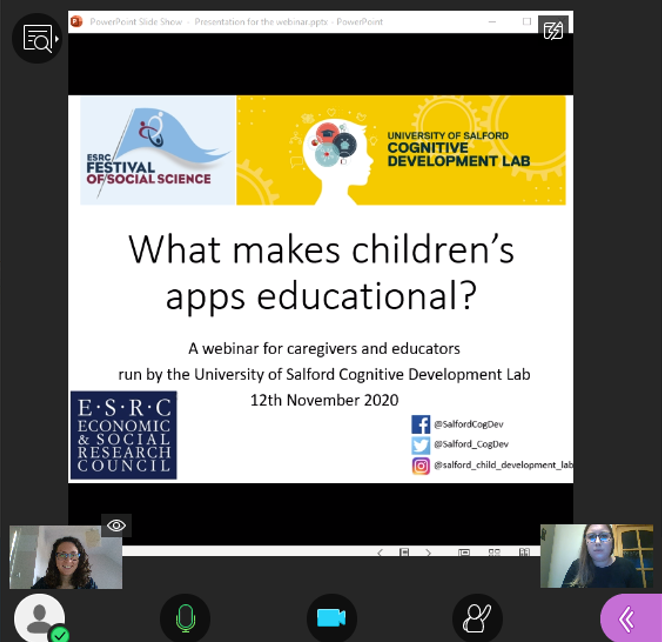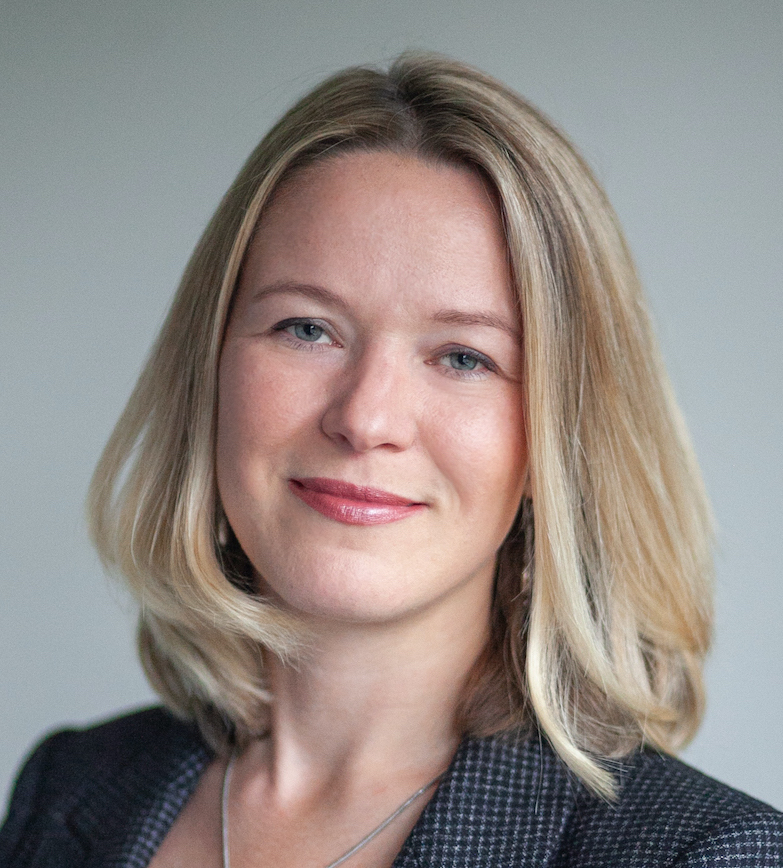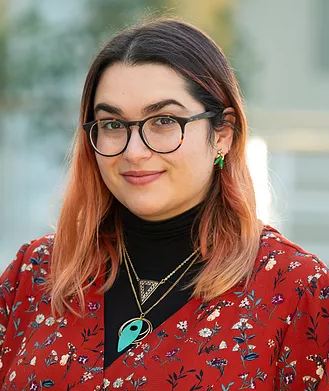A webinar “What makes children’s apps educational” run by our lab
Last Thursday, on 12th November, Dr Gemma Taylor and Joanna Kolak from our lab ran an online webinar for parents and early years professionals entitled “What makes children’s apps educational?”
During the webinar we discussed app features and app design while showing participants videos including examples of activities from the most popular apps for preschool children. We discussed examples of activities in the apps that have high educational potential (based on the research that we conducted from a developmental perspective) and some that do not meet the criteria of being educational. We focused on app features such as learning goal, meaningful learning and problem solving. At the end of the session we had a great discussion with the participants of the webinar and we answered some interesting questions about children’s apps.
Thank you to everyone who joined our session. We will soon plan more webinars about selecting educational apps for children, including one for app developers – watch this space!


